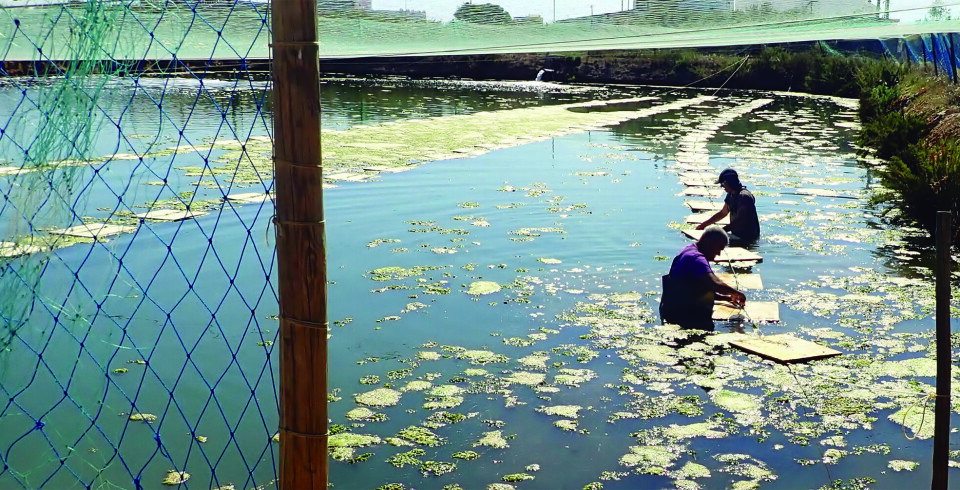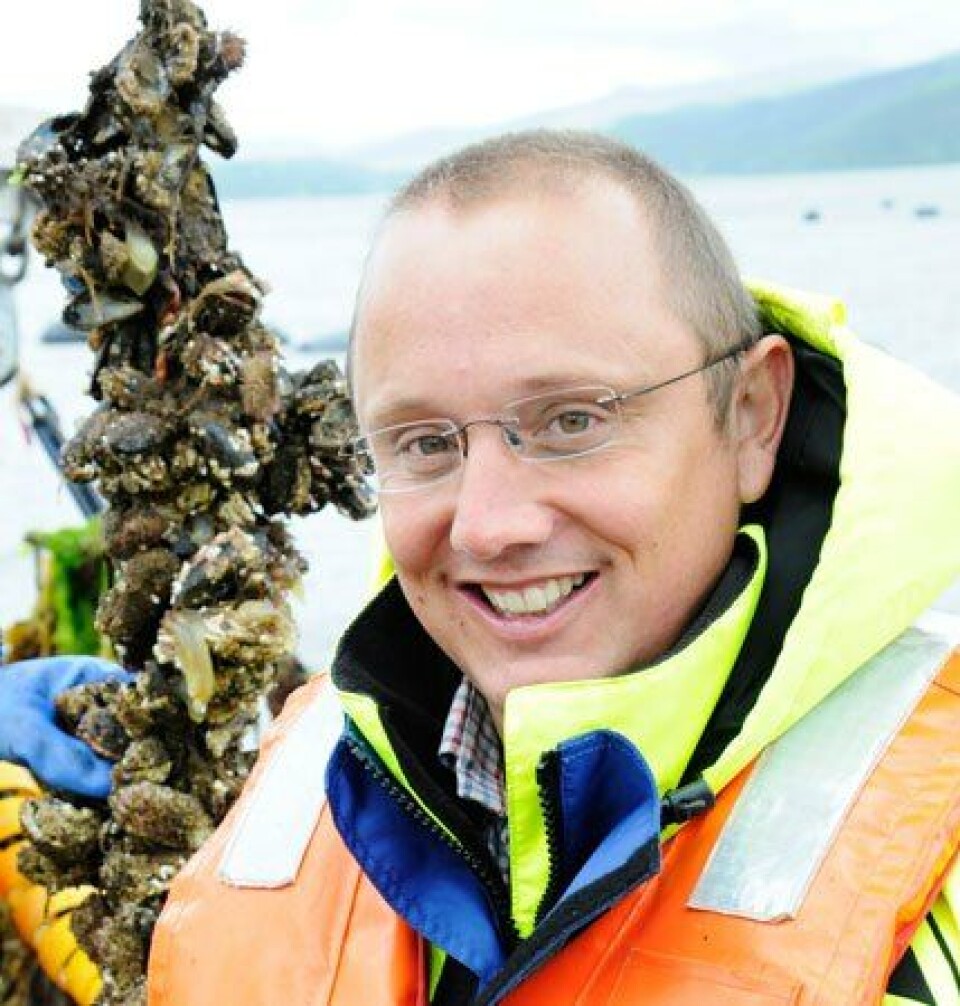
What is IMTA, exactly?
An aquaculture expert from the Scottish Association for Marine Science has contributed towards achieving a global definition of integrated multi-trophic aquaculture (IMTA).
Marine ecologist Dr Adam Hughes is one of 39 experts from 11 countries who have been working towards setting boundaries for what should and shouldn’t be called IMTA as part of a larger three-year project to increase sustainable aquaculture in the European Atlantic area.
The EU-funded “Integrate” project has eight case studies spread across three fully operational pilot actions in Spain, France, Portugal and Ireland to develop specific technology and production processes for Atlantic IMTA.

Overcome hurdles
It has also been working to strengthen collaborative networks between the scientific, business and government sectors and overcome social, administrative and legal hurdles that it says do not allow the full development of IMTA production systems. Achieving a globally recognised definition is part of that process.
Earlier this year, the project consortium launched a questionnaire with a specific target audience of experts with direct knowledge or experience of IMTA.
The next step for the Integrate consortium was to bring together experts in Porto, Portugal in May to discuss the final definition of IMTA, and also to identify which factors may be hindering the development of this activity on an industrial scale.
Hughes was a keynote speaker at the event, which also included presentations from Xinhua Yuan of the UN Food and Agriculture Organisation (FAO), Amir Neori from the University of Haifa and Patricia Bianchi of the Aquaculture Stewardship Council (ASC).
Firstly, the experts concluded that it is possible and necessary to have a single global IMTA definition for all systems, whether freshwater, marine, land-based, open-water, recirculating, flow-through, etc.
“It is essential that the definition be broad and all-encompassing so that it can be understood across the board,” said Hughes.
“This simple definition will be accompanied by a technical standard that can be detailed and layered for a more scientific and technical audience. In this way all stakeholder groups will be represented at an appropriate level of detail for their needs, and this will help to guarantee wider adoption of IMTA practices in the European Atlantic Area.”
Environmental benefits
Although integrated systems can include terrestrial organisms, the experts agreed that the primary product and core activity must be aquatic, that there must be a minimum of two categories of organisms and that the energy (food) exchange between them must be intentionally managed.
The experts also concluded that environmental and socio-economic benefits are a very important part of IMTA, although there was debate about whether those should be included in the definition.
On the question of what “integrated” means in terms of IMTA, the experts concluded that the direct water connectivity between organisms in the system is more important than the scale at which this connection occurs. In other words, water must be transferred from one organism to another without the need for road, rail or aircraft transport; however, absolute co-location in the same licensed site, for example, is not necessary.
Once this physical connectivity has been proven, a modelling approach to predict and manage the energy transfer can be used.
Essential factors
Finally, the experts agreed that an appropriate legislative framework for IMTA already exists. “We have the necessary tools to adapt the existing regulations and incorporate IMTA into these frameworks when the revision cycle of these regulations takes place,” said Jessica Ratcliff from the National University of Ireland Galway (NUIG).
“It must be ensured that regulatory frameworks specifically recognise IMTA and support its development.”
The four essential factors that the IMTA definition will include are:
- water;
- functional groups;
- management of nutrient flux;
- harvest
“The next challenge is to bring these elements together in a simple yet meaningful definition, in order to obtain support from key players in the industry and policy-making sectors, and as a basis to increase awareness and knowledge about what IMTA means for the sustainability of aquaculture and thus gain support from the general public,” said Martha Dunbar, Integrate project coordinator at Spain’s Aquaculture Technology centre (CTAQUA), which is leading the project.
Integrate partners are CTAQUA, the Agrocampus Ouest Research Institute (France), SAMS (Scotland), the Portuguese Institute of the Sea and Atmosphere, the National University of Ireland Galway, the Irish Seaweed Consultancy, ALGAplus (Portugal), and the Centre for the Study and Valorisation of Algae (France).






















































